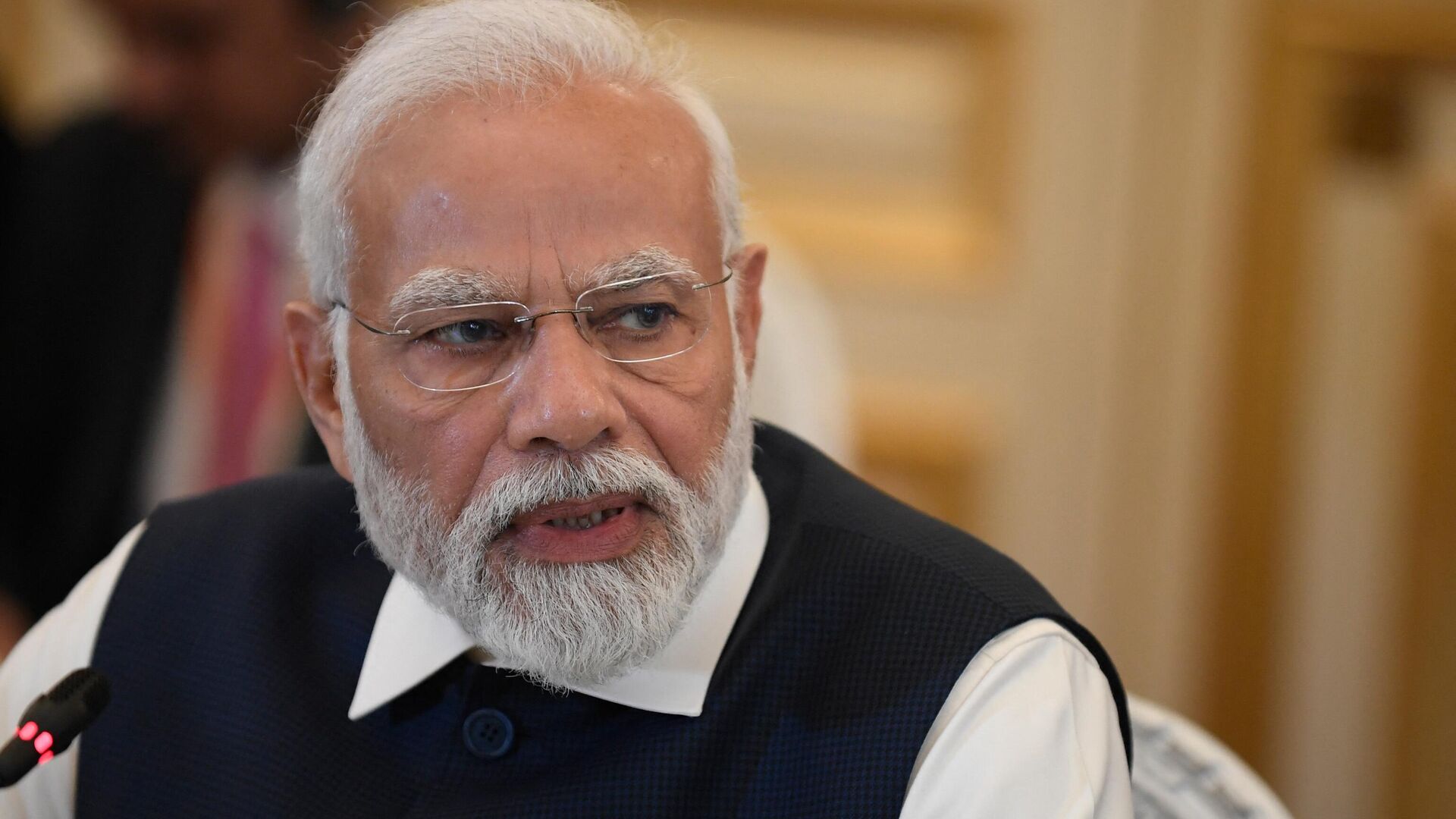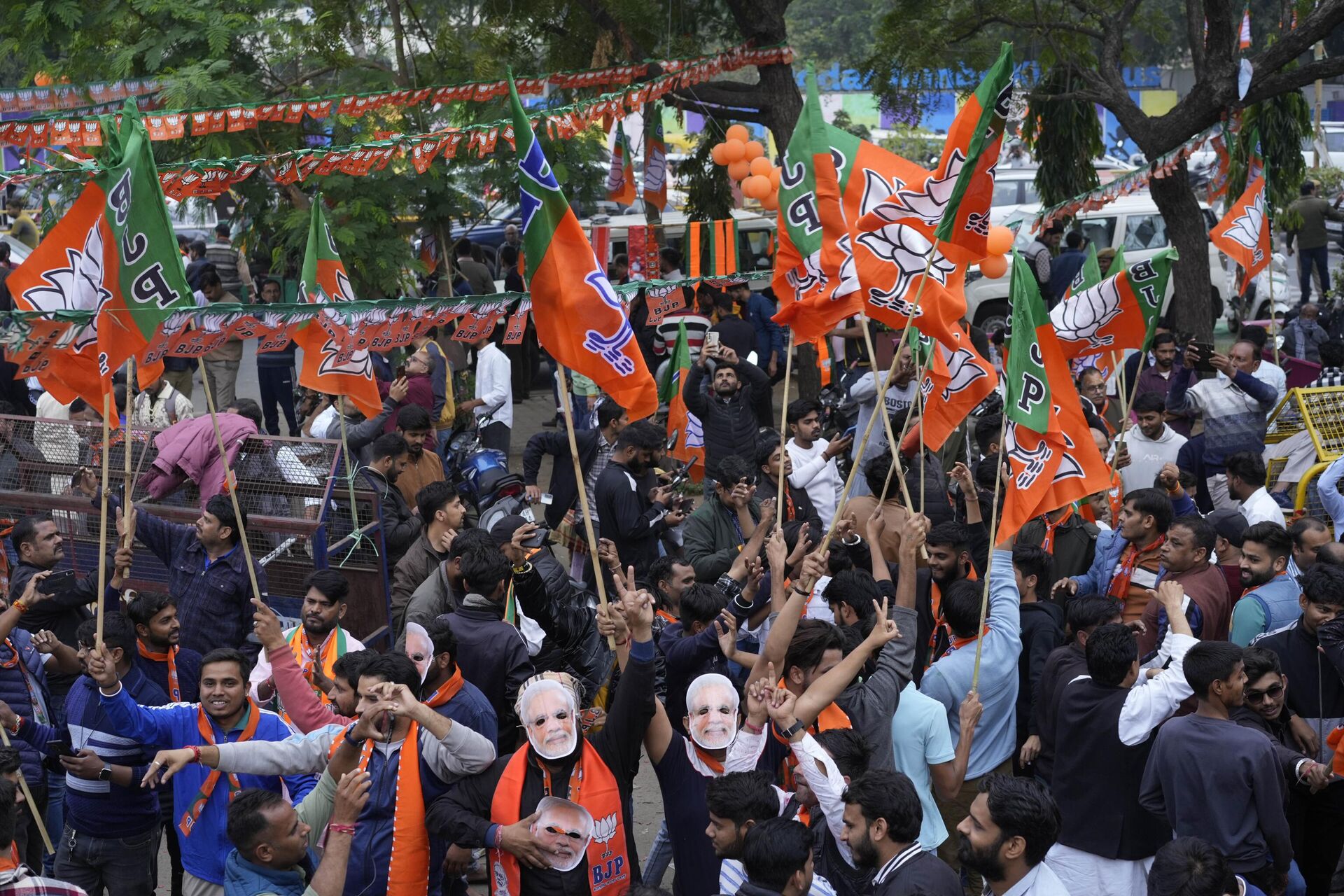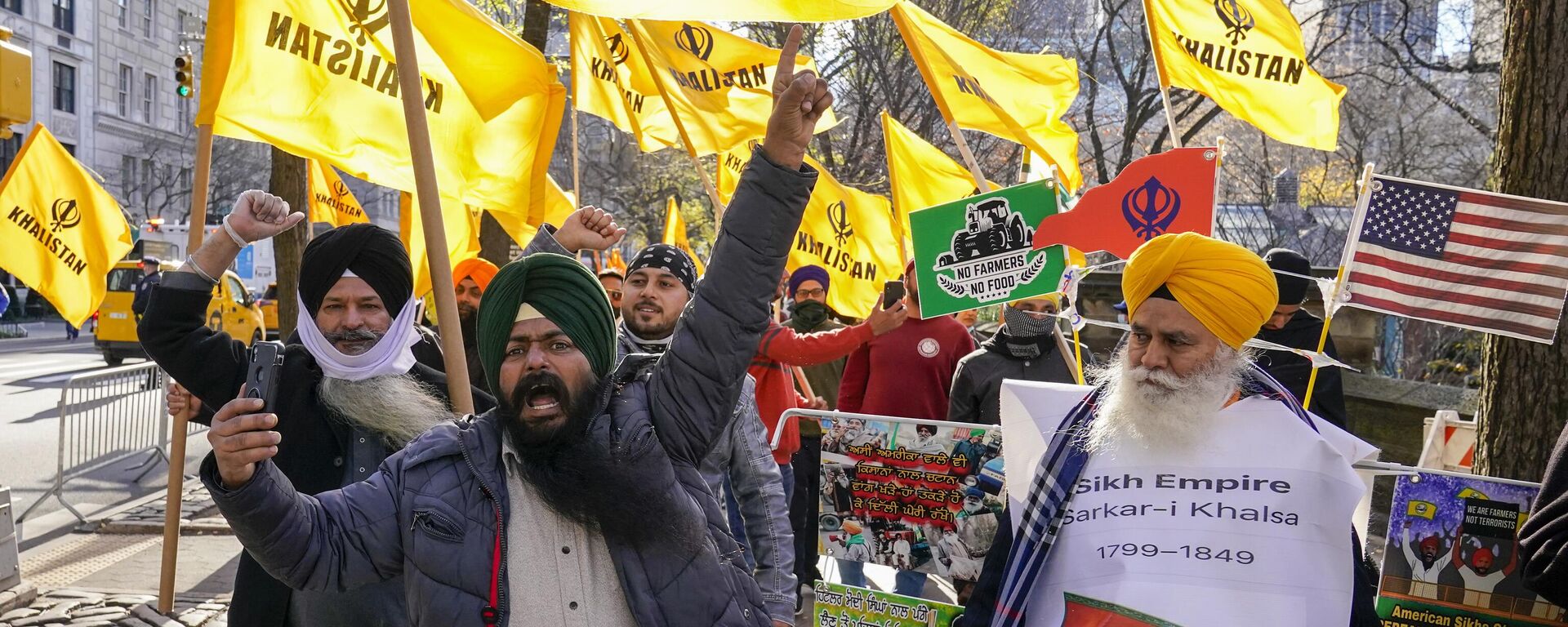https://sputniknews.in/20231221/how-modi-used-ft-to-bust-western-narrative-and-reach-out-to-indian-diaspora-5920339.html
How Modi Used FT to Bust Western Narrative and Reach Out to Indian Diaspora
How Modi Used FT to Bust Western Narrative and Reach Out to Indian Diaspora
Sputnik India
In his interview with Financial Times, Prime Minister Narendra Modi for the first time responded to American charge of Indian government's involvement in the alleged foiled assassination plot against Gurpatwant Singh Pannun.
2023-12-21T19:36+0530
2023-12-21T19:36+0530
2023-12-21T19:36+0530
sputnik opinion
india
us
canada
bharatiya janata party (bjp)
microsoft
narendra modi
indian diaspora
khalistan movement
sikhs
https://cdn1.img.sputniknews.in/img/07e7/0c/15/5908535_0:159:3077:1890_1920x0_80_0_0_ad5143977c3dd62ccef8126f340e54b0.jpg
In his interview with Financial Times, Prime Minister Narendra Modi for the first time responded to American charge of Indian government's involvement in the alleged foiled assassination plot against pro-Khalistan terrorist Gurpatwant Singh Pannun, a dual US-Canadian citizen who is the general counsel of banned group Sikhs for Justice (SFJ).In another part of the interview published separately, Modi downplayed and even criticised concerns in the West about India's human rights' situation, or the state of Muslims in the country among others."These claims not only insult the intelligence of the Indian people but also underestimate their deep commitment to values like diversity and democracy," the Indian Prime Minister underlined.The recent charge by the US and Canada alleging Indian involvement in targetting of pro-Khalistan separatists has once again moved the focus, at least in the West, to India's human rights' situation.For instance, the United States Commission on International Religious Freedom (USCIRF) last week stated that it was “alarmed by India’s increased transnational targeting of religious minorities", a reference to the Pannun and Canada's allegations.Selling Indian Story to Global Business Leaders and Indian DiasporaDespite the dubious role of western media in criticizing Modi's politics, the Indian leadership understands the influence of the publications like FT at a time when India is seeking foreign investors to position itself as a major industrial and manufacturing hub.Global Business Influencers (GBI) Survey, a global syndicated media and insight survey from polling agency IPSOS, rates FT as the most read news publication among the global business executives and decision-makers."Once an Indian will always be an Indian. The sense of Indianness is not limited by national boundaries. It is a feeling. You never lose the essence of being Indian. Whether you are voting or not is a different thing, but you never lose that emotional connect with your motherland," Singh remarked.He explained that five issues that used to figure prominently in Indian political discourse before 2014 were being looked through a "different lens" now. These are matters related to electricity connections, road connectivity, healthcare, education and employment."Merely having an electricity connection is longer an issue, but one must have a 24/7 electricity connection now," Singh commented.Similarly, he noted that under PM Modi, every Indian now has a mandatory health insurance of nearly $6,000.He quoted Modi as saying that India was on the "cusp of greatness".The Rising Influence of Indian DiasporaAmbassador Anil Trigunayat, a former Indian envoy to Jordan, Libya and Malta, explained the importance of Indian diaspora to Prime Minister Modi's domestic politics.According to official Indian estimates, the Indian diaspora is estimated to be over 30 million people across the world. In 2022, Indians remitted around $125 billion in payments back home, the largest amount for any country.In fact, many global brands such as Alphabet Inc, Microsoft or Adobe are headed by Indian-origin CEOs, a testament to India's soft power.According to official records, the Indian PM has visited over 100 countries in the last 10 years. In most of his visits, he has interacted with members of the Indian community, sometimes through big-ticket events such as the one which took place in Sydney in May 2023.
https://sputniknews.in/20231201/us-shelters-extremists-but-accuses-india-of-transnational-repression-5658339.html
india
us
canada
australia
south asia
Sputnik India
feedback.hindi@sputniknews.com
+74956456601
MIA „Rossiya Segodnya“
2023
Dhairya Maheshwari
https://cdn1.img.sputniknews.in/img/07e6/0c/13/138962_0:0:641:640_100x100_80_0_0_2cb44360dbcdf6d84bf4b299cd045917.jpg
Dhairya Maheshwari
https://cdn1.img.sputniknews.in/img/07e6/0c/13/138962_0:0:641:640_100x100_80_0_0_2cb44360dbcdf6d84bf4b299cd045917.jpg
News
en_IN
Sputnik India
feedback.hindi@sputniknews.com
+74956456601
MIA „Rossiya Segodnya“
Sputnik India
feedback.hindi@sputniknews.com
+74956456601
MIA „Rossiya Segodnya“
Dhairya Maheshwari
https://cdn1.img.sputniknews.in/img/07e6/0c/13/138962_0:0:641:640_100x100_80_0_0_2cb44360dbcdf6d84bf4b299cd045917.jpg
modi news, modi germany, modi ft interview, pannun killing, pannun air india, pannun parliament attack, khalistan referendum, trudeau on india, india us relations, pannun foiled plot, amrit kaal, india gdp growth, indian diaspora, india elections 2024, bjp news, india news
modi news, modi germany, modi ft interview, pannun killing, pannun air india, pannun parliament attack, khalistan referendum, trudeau on india, india us relations, pannun foiled plot, amrit kaal, india gdp growth, indian diaspora, india elections 2024, bjp news, india news
How Modi Used FT to Bust Western Narrative and Reach Out to Indian Diaspora
British publication Financial Times this week published a wide-ranging interview with Indian Prime Minister Narendra Modi.
In his interview with Financial Times, Prime Minister Narendra Modi for the first time responded to American charge of Indian government's involvement in the alleged foiled assassination plot against pro-Khalistan terrorist Gurpatwant Singh Pannun, a dual US-Canadian citizen who is the general counsel of banned group Sikhs for Justice (SFJ).
While the Indian PM assured that India would "definitely" look into the US charges, he also asserted that New Delhi is “deeply concerned about the activities of certain extremist groups based overseas”, the FT reported.
“These elements, under the guise of freedom of expression, have engaged in intimidation and incited violence," stated Modi, noting longstanding Indian concerns about the condoning of the activists of designated Indian terrorists in jurisdictions such as US and UK.
In another part of the interview published separately, Modi downplayed and even criticised concerns in the West about India's human rights' situation, or the state of Muslims in the country among others.
"These claims not only insult the intelligence of the Indian people but also underestimate their deep commitment to values like diversity and democracy," the Indian Prime Minister underlined.
Even in the past, Modi has firmly rejected the west-spawned narrative on the worsening human rights track record under his Bharatiya Janata Party (BJP)-led coalition which came to power in 2014 and is all but certain to win a third term in the federal election in 2024.
The recent charge by the US and Canada alleging Indian involvement in targetting of pro-Khalistan separatists has once again moved the focus, at least in the West, to India's human rights' situation.
For instance, the United States Commission on International Religious Freedom (USCIRF) last week stated that it was “alarmed by India’s increased transnational targeting of religious minorities", a reference to the Pannun and Canada's allegations.
Analysts have told Sputnik India that such politically-motivated attacks from the west are set to grow further as the South Asian nation heads into the election season next year.
"The US is not particularly happy with the Indian growth story under Prime Minister Modi. We are growing at 7 to 8 percent a year. We are not exactly a stooge of the US and have a fiercely independent foreign policy," Indian strategic affairs expert Dr Anant Bhagwat told Sputnik India.
He noted that western media, including FT itself, have in the past been guilty of peddling anti-India narrative.
Selling Indian Story to Global Business Leaders and Indian Diaspora
Despite the dubious role of western media in criticizing Modi's politics, the Indian leadership understands the influence of the publications like FT at a time when India is seeking foreign investors to position itself as a major industrial and manufacturing hub.
Global Business Influencers (GBI) Survey, a global syndicated media and insight survey from polling agency IPSOS, rates FT as the most read news publication among the global business executives and decision-makers.
Binay Kumar Singh, a political analyst associated with BJP-affiliated think tank Dr. Syama Prasad Mookerjee Research Foundation (SPMRF), told Sputnik India that PM Modi intended to reach out three key set of readers through his FT interview- the "common Indian", foreign governments and the Indian diaspora, particularly those residing in western countries.
Singh notes that the significance of Non-Resident Indians (NRIs), or Indian-origin people, in domestic politics has greatly increased since PM Modi first came to power in 2014.
"Once an Indian will always be an Indian. The sense of Indianness is not limited by national boundaries. It is a feeling. You never lose the essence of being Indian. Whether you are voting or not is a different thing, but you never lose that emotional connect with your motherland," Singh remarked.
Quoting from the FT interview, Singh said that Modi has sent out a "clear and loud message" that the "aspirations of Indian electorate have changed in the last 10 years".
He explained that five issues that used to figure prominently in Indian political discourse before 2014 were being looked through a "different lens" now. These are matters related to electricity connections, road connectivity, healthcare, education and employment.
"Merely having an electricity connection is longer an issue, but one must have a 24/7 electricity connection now," Singh commented.
Similarly, he noted that under PM Modi, every Indian now has a mandatory health insurance of nearly $6,000.
He quoted Modi as saying that India was on the "cusp of greatness".
"By this, Modi ji means that we as a nation are about to change our developmental orbit. From being a developing nations, we are ready to move into the league of developed countries," he said, adding that PM Modi has vowed to make India a "developed nation" in 2047, when the nation would mark a century of independence.
The Rising Influence of Indian Diaspora
Prime Minister Modi told the Pravasiya Bharatiya Diwas (PBD) conference in Indore in January that the Indian diaspora occupy a "significant place in India's journey in Amrit Kaal (the coming 25 years when India is expected to transition to a developed nation)'.
Ambassador Anil Trigunayat, a former Indian envoy to Jordan, Libya and Malta, explained the importance of Indian diaspora to Prime Minister Modi's domestic politics.
"Over the years, the composition of the Indian diaspora across the politico-economic spectrum in their countries of adoption have increased exponentially. Many of them are even heads of state of occupy influential positions in government or industry in different nations," Trigunayat told Sputnik India.
According to official Indian estimates, the Indian diaspora is estimated to be over 30 million people across the world. In 2022, Indians remitted around $125 billion in payments back home, the largest amount for any country.
In fact, many global brands such as Alphabet Inc,
Microsoft or Adobe are
headed by Indian-origin CEOs, a testament to India's soft power.
Trigunayat credited PM Modi for placing a "greater emphasis" on connecting with Indian diaspora during his leadership.
According to official records, the Indian PM has visited over 100 countries in the last 10 years. In most of his visits, he has interacted with members of the Indian community, sometimes through big-ticket events such as the one which took place in Sydney in May 2023.
"Some interactions are pretty iconic when leaders of the host countries him joined him on the podium. His popularity with the diaspora as well as the locals and capacity to connect is simply exceptional," Trigunayat said.




